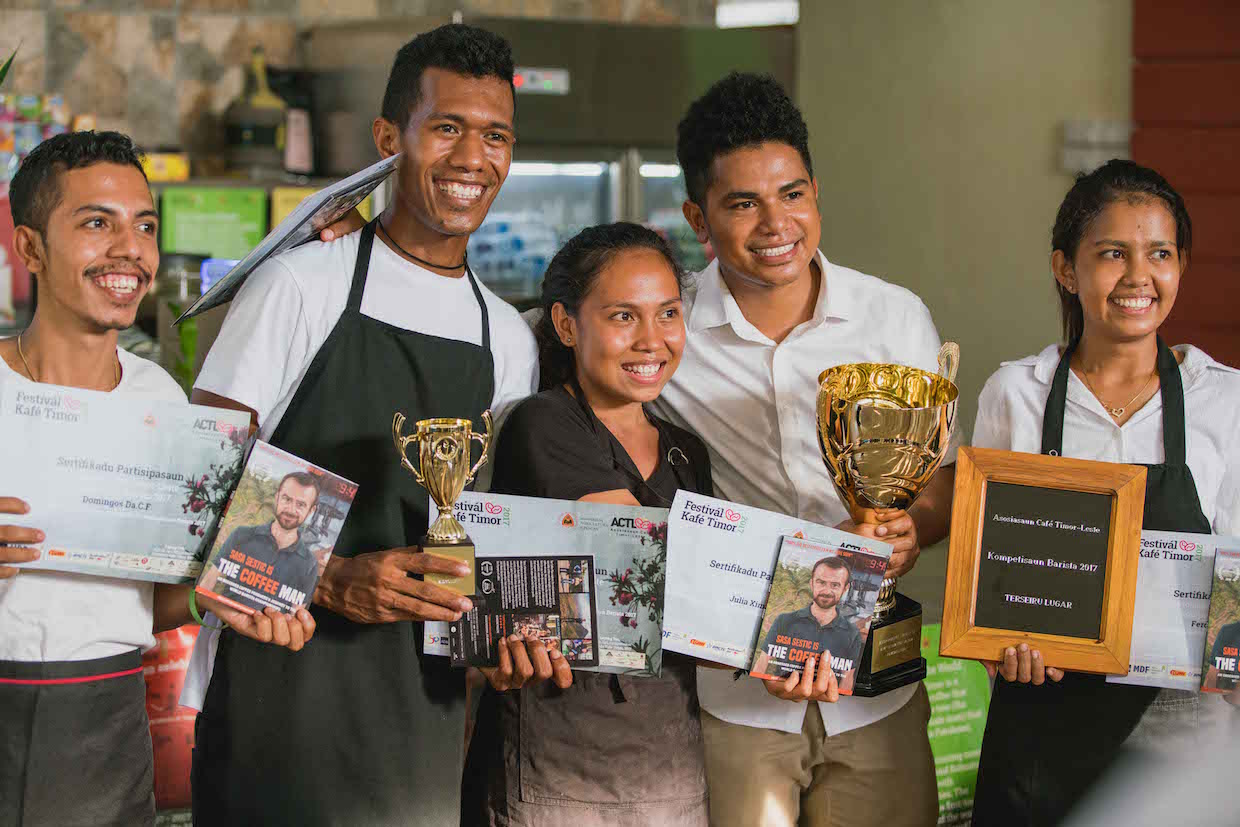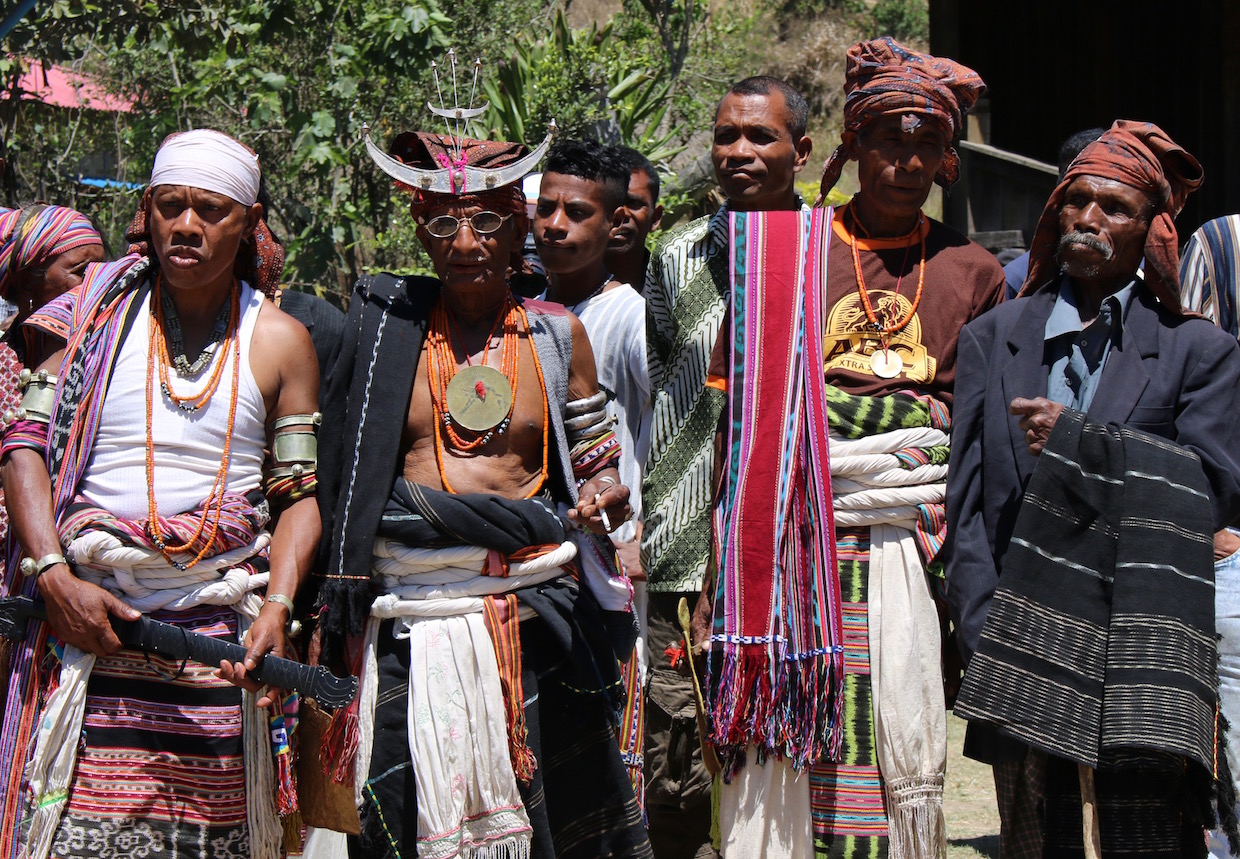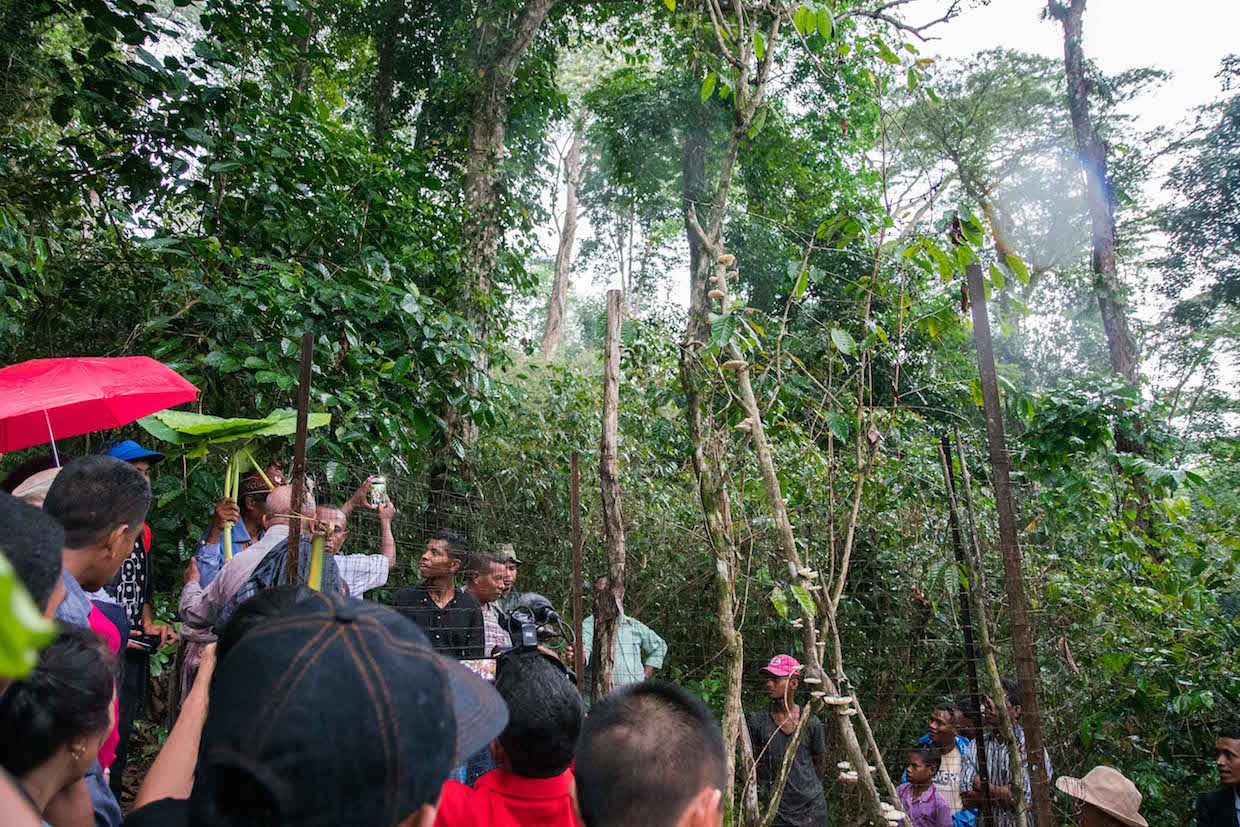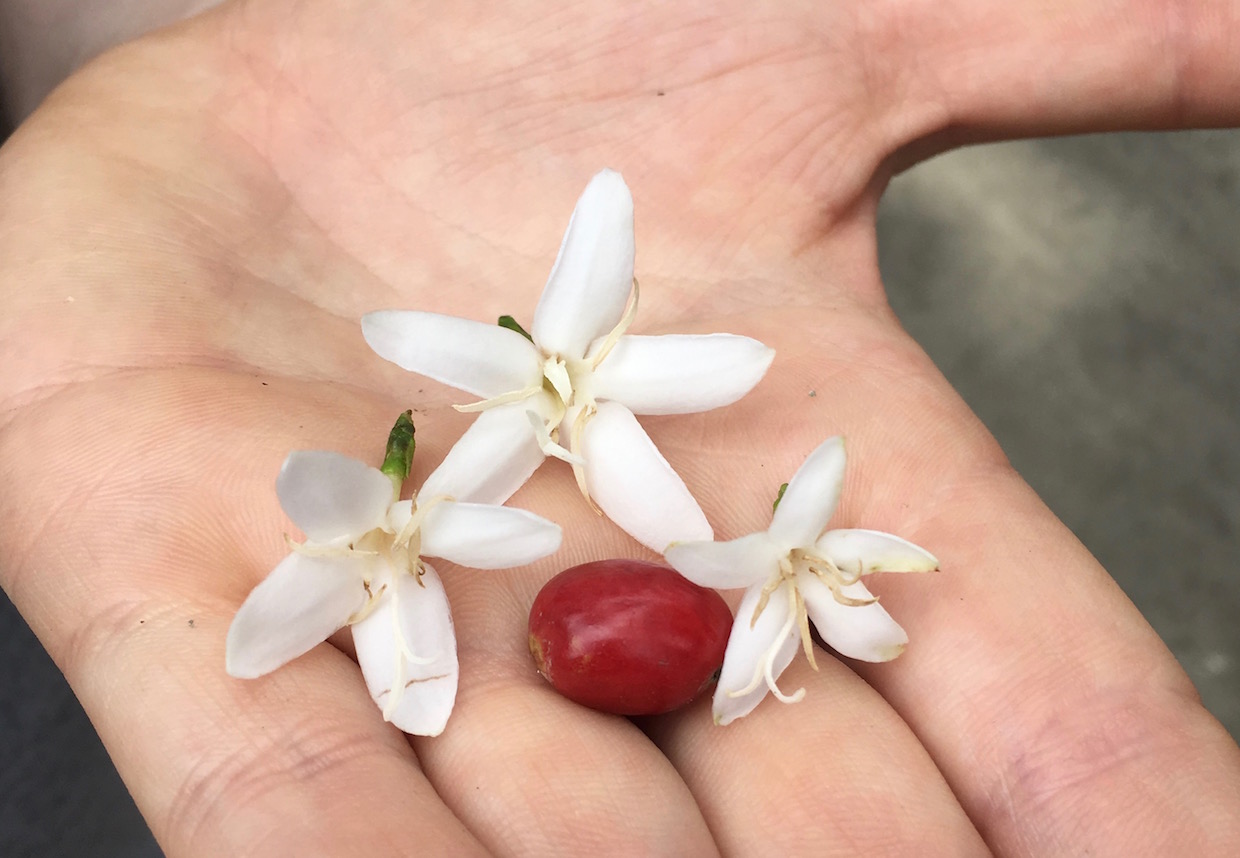For more than 200 years, the people of Timor-Leste have experienced a strong culture of drinking coffee. Unlike in many other coffee-producing countries, Timorese drink coffee as part of their daily ritual.
With the idea of strengthening the coffee industry in Timor, private businesses and other stakeholders, including farmers, spearheaded an operation to bring together all segments of the industry to create positive change beneficial to all participants. In 2016, the country launched its first coffee industry association — the Association of Café Timor-Leste (ACTL) — and hosted the first Festival Kafe Timor. Following that festival’s great success, the country celebrated its second annual coffee festival this past October 21–28.

National barista finalists, from left to right: Domingos Fredco from ETDA; Ameta
Acha from Café Letefoho; Champion Julia Ximenes and Tozy Goncalves. both from Agora Food Studio; Ferdiana Goncalves from Rolls and Bowls. Photo by Jeff Hann
The festival featured a cup quality competition, a national barista competition, training seminars for baristas and roasters, lectures ranging from coffee production to promotion of the slow foods movement, a photo exhibition and farm tours.
This was Timor-Leste’s first national barista competition, and participants were very excited and proud to compete. Julia Ximenes from Agora Food Studio, an innovative slow food movement cafe, was named as the country’s first barista champion. Ximenes reported, “I feel it was a win for all the baristas, not just me, because of all the support they had from the audience. We are all very proud of all the Timorese baristas that took part.”
At the end of the weeklong festival, the winners of the second annual National Cup Quality Competition were crowned. In the past year, the ACTL trained 25 national cuppers, which qualified 50 finalists (from 72 coffees submitted) for the final cupping competition. Eight coffee roasters and buyers from around the globe attended the festival to judge the coffees and determine the winning lots.
“Coffee samples were very consistent, which points to a good sign in the overall quality for the future,” said Terence Tay from Liberty Coffee in Singapore.
The festival also celebrated the 90th anniversary of the discovery of Hibrido de Timor, the original Kafe Timor hybrid, which grandfathered many varieties around the world including the famous Catimor and Sarchimor. The original plant (verified in 2012) still grows high in the mountains in Fatubessi. International participant Jeff Hann, a filmmaker from Australia, was able to visit the legendary tree.
“It was a wild forest walk to the tree, which included a torrential downpour,” he said. “The tree is special because it’s a legacy of coffee for the entire county of Timor. Seeing the emotional response from the locals was exciting, to see how much the hybrid means to them in Timor.”
The festival brings together players from all segments of the coffee chain in Timor-Leste in hopes of developing a strong foundation for the greater coffee industry. Timor-Leste’s top export is oil, but it is estimated that the country’s oil reserves will be depleted within the next four years, with the possibility of new reserves being developed. As coffee is the second largest export — one-quarter of the population relies on coffee as a source of cash income — it has become a valuable crop to develop to sustain the country’s economy.
According to Evangelino Monteiro Soares, ACTL President, “This festival is an important milestone in the development of specialty coffee in Timor-Leste. We have a long tradition of producing coffee here but a lot of this is still new for us. It was an honor to welcome guests from around the world for this years festival and it’s been great to see more young people getting involved and becoming passionate about coffee. We are all looking forward to next year and are excited about improving the quality of our coffee and sharing our story with the world.”
Connie Blumhardt
Connie Blumhardt is the founder and publisher of Roast Magazine. She is based in Portland, Oregon.










Comment